tilte
description can go here

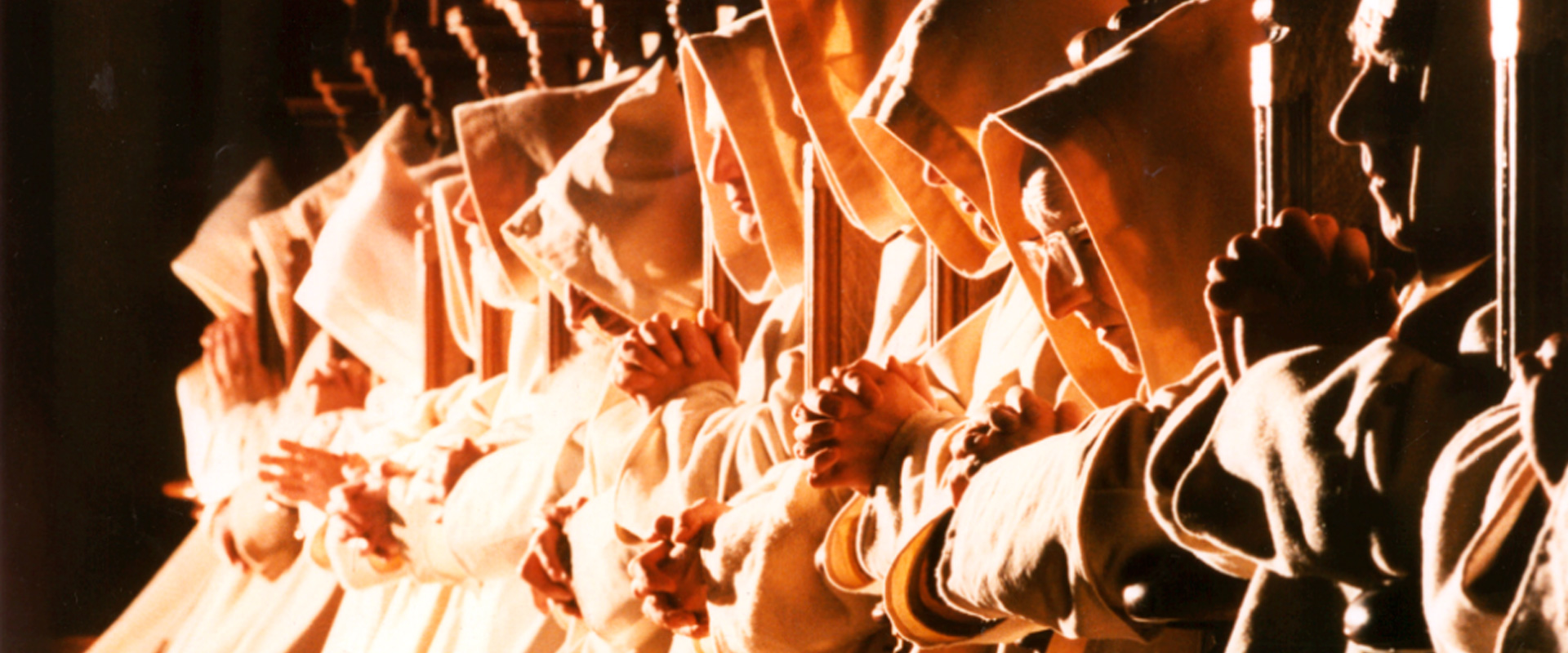
“The Liturgy is the summit towards which the activity of the Church is directed; at the same time it is the font from which all her power flows. We, who have left everything to seek God alone and to possess him more fully, should carry out the liturgical functions with particular reverence. For when we celebrate the Sacred Liturgy, especially the Eucharistic celebration, we have access to God the Father through the Son, the Word made flesh, who suffered and has been glorified, and so, in the outpouring of the Holy Spirit, we enter into communion with the Most Holy Trinity.” (Statutes 41.1)
Through the liturgical actions of the Church, especially in the Eucharistic celebration, the Paschal mystery of Christ gathers the whole of creation up into the movement of Christ to the Father and consecrates it by the Spirit. The Eucharist is the centre of the life of the community, and the whole Church is invisibly present.
The Eucharistic celebration is, so to speak, prolonged through the Liturgy of the Hours. Nights and days are sanctified by the praise of God. The Liturgical Hours provide the frame of the day and of the year as the annual liturgical cycle blends with the changing natural seasons in a rhythm of life, death and new life. The monk is moulded by this rhythm and his prayer is taken up into that of Christ and the Church far beyond the limits of his individual concerns. He stands before God with and on behalf of all. Like Christ, he assumes and sometimes experiences in the nakedness of his solitude their sufferings and weaknesses as well as their hope and faith. It is from this place that his prayer in Christ has redemptive power beyond his knowing.
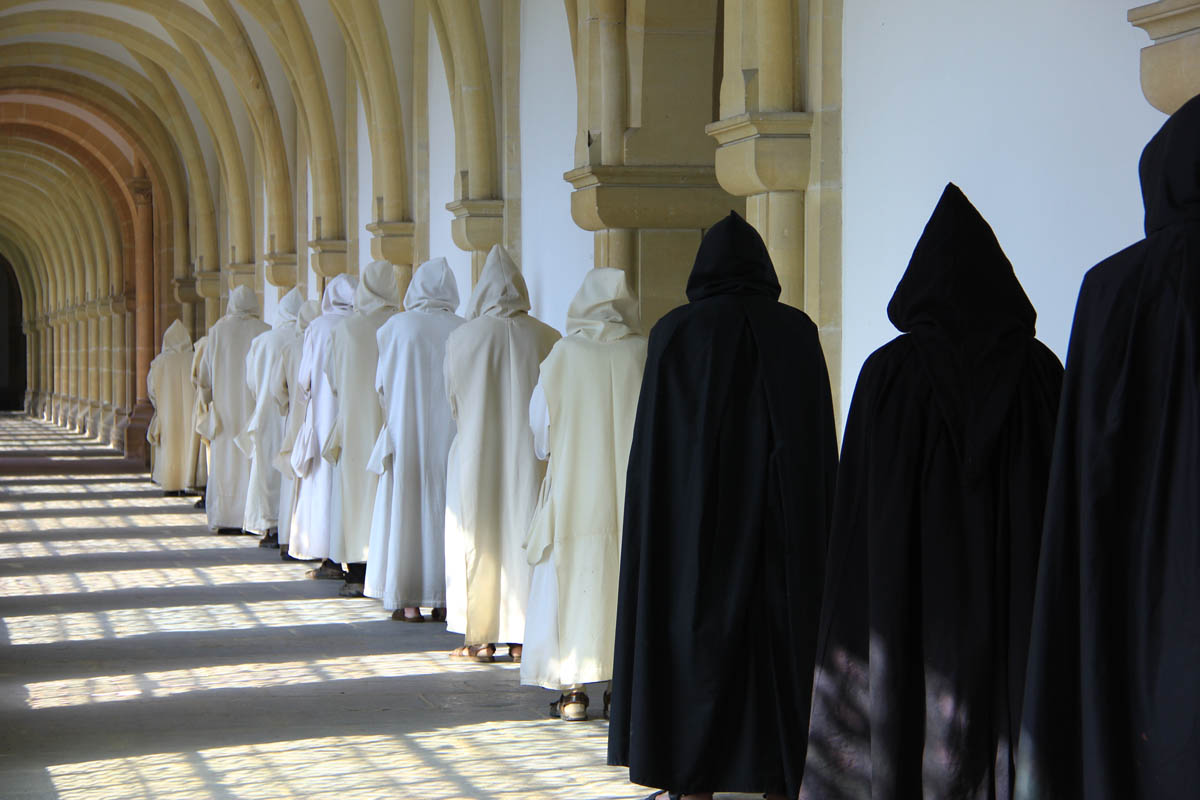
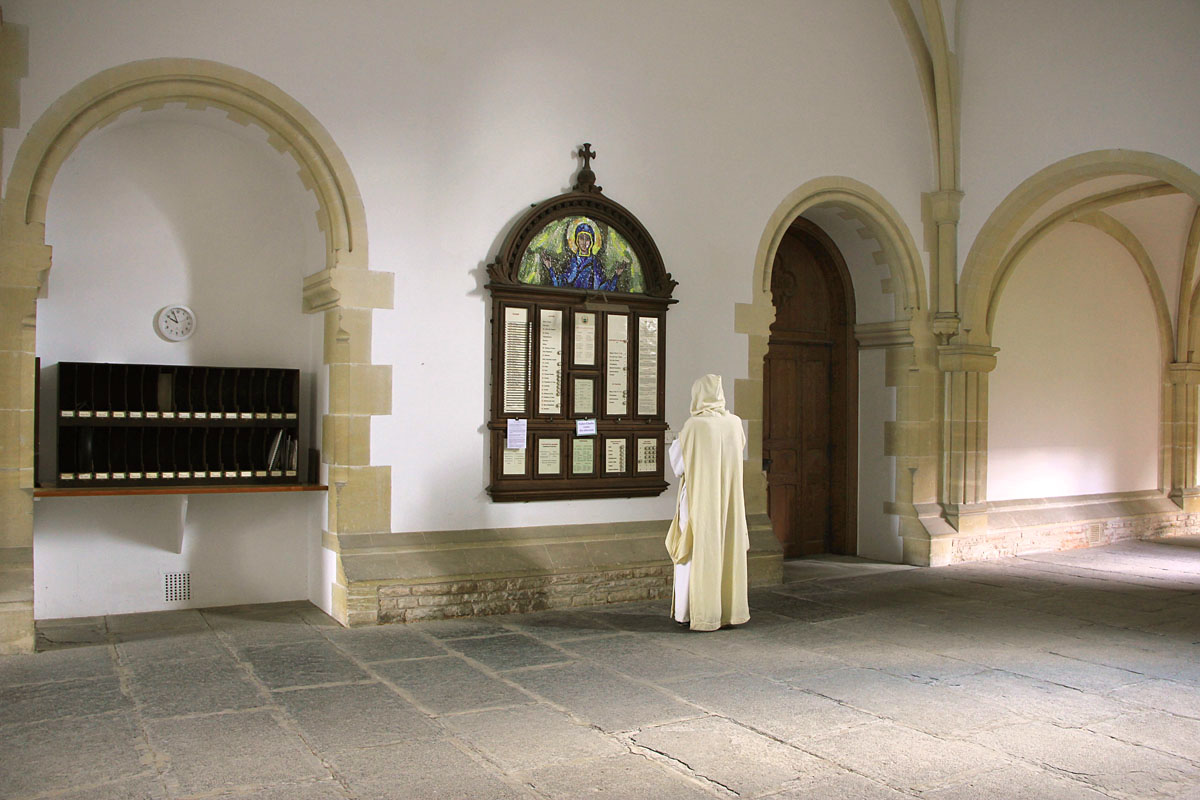
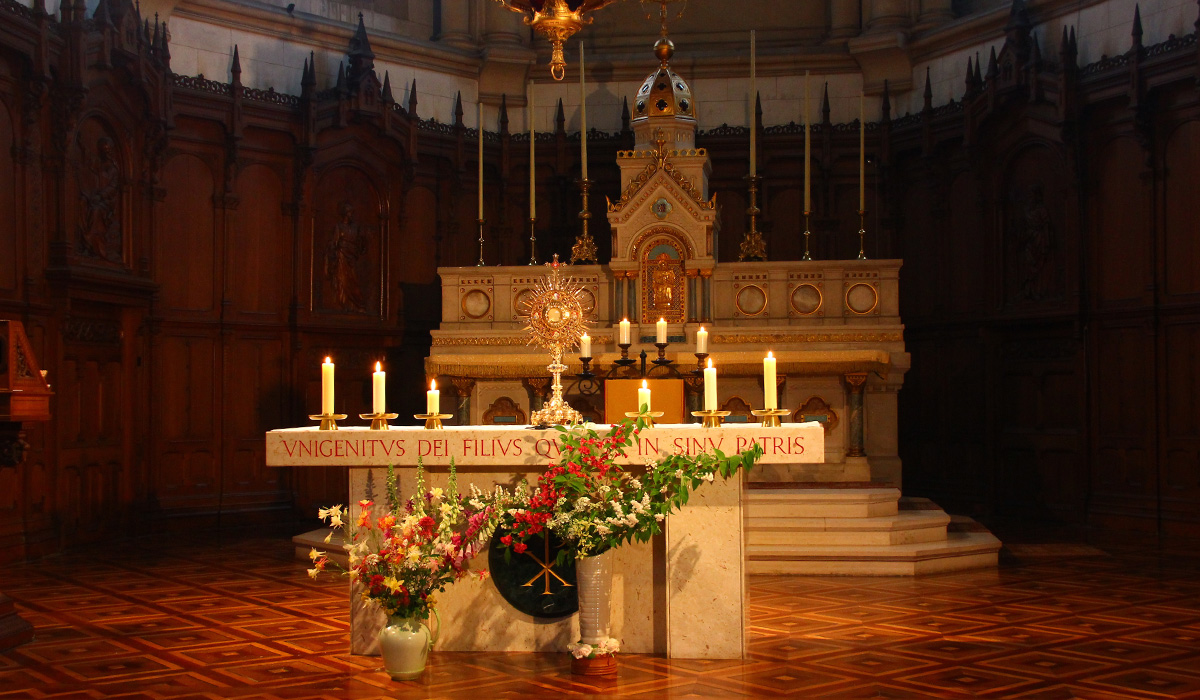
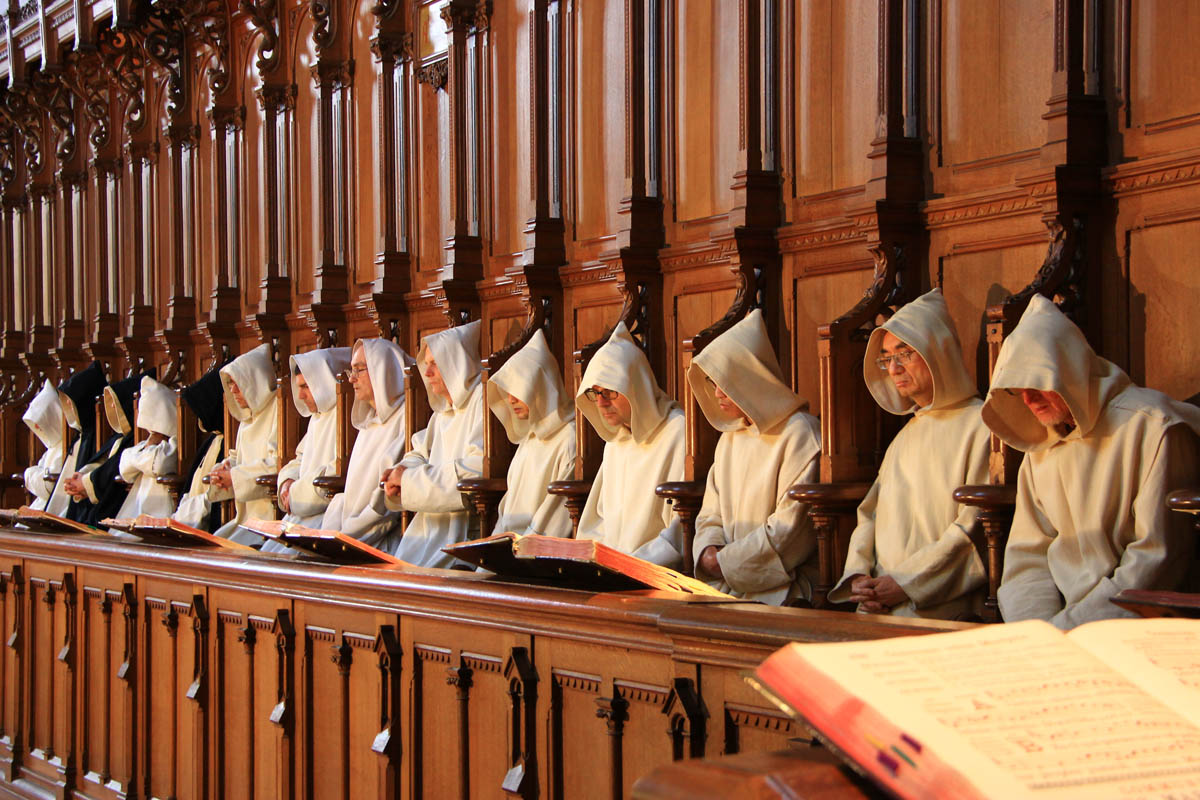
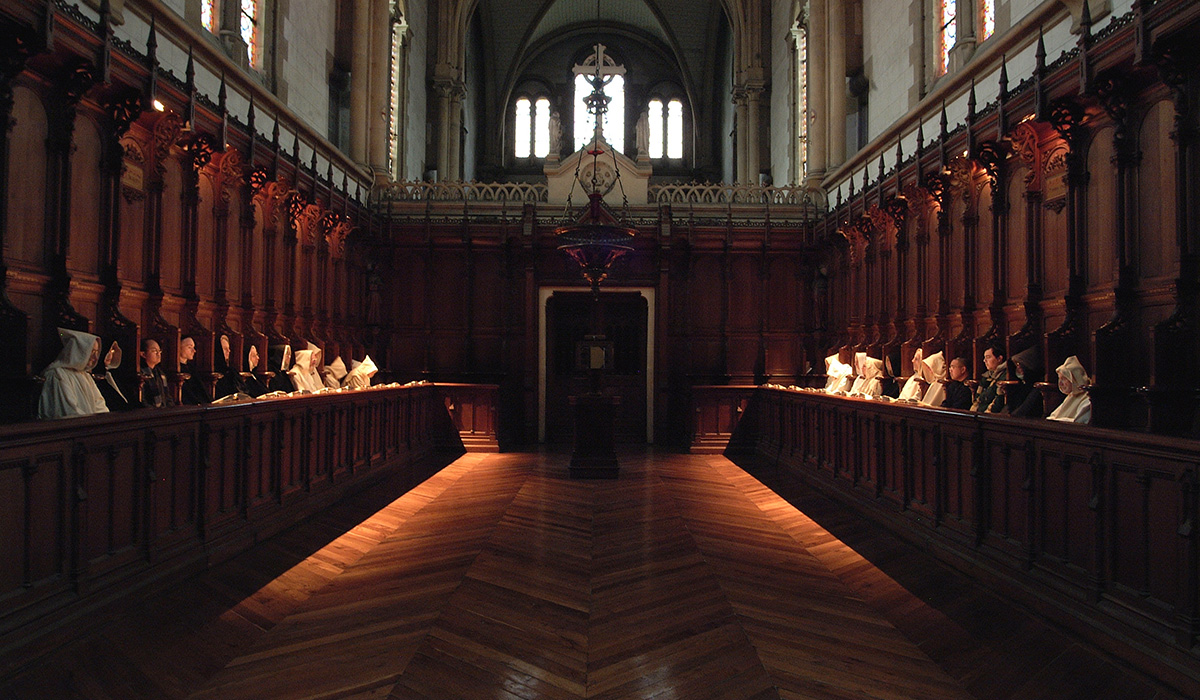
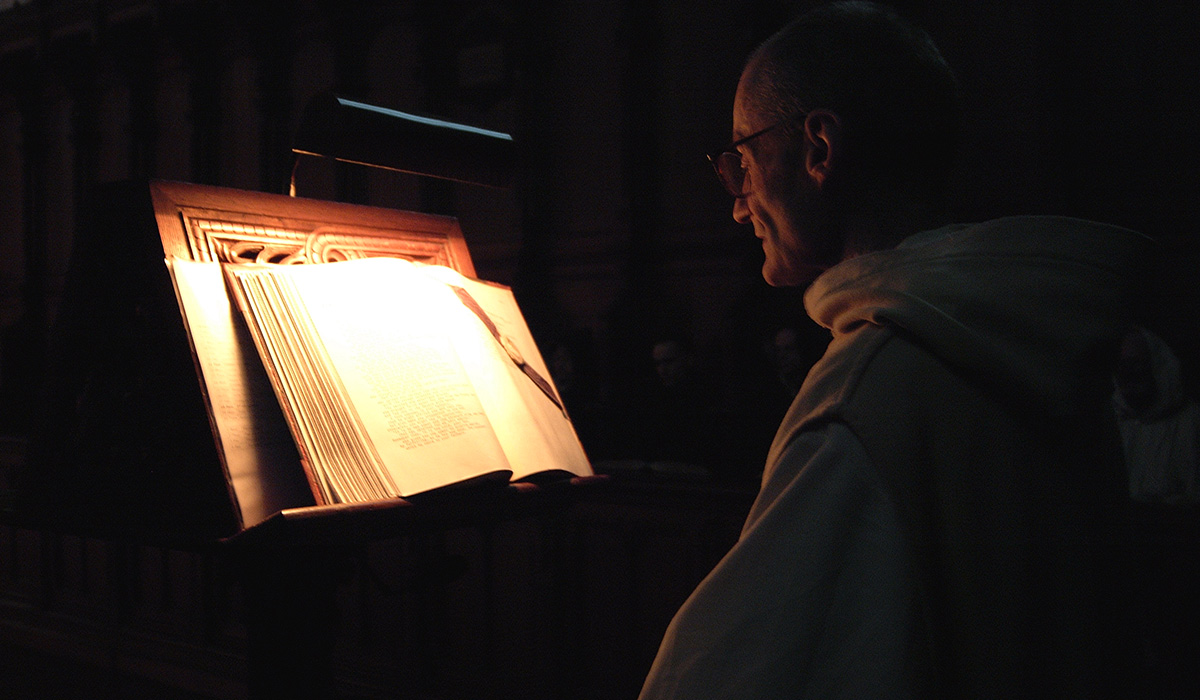
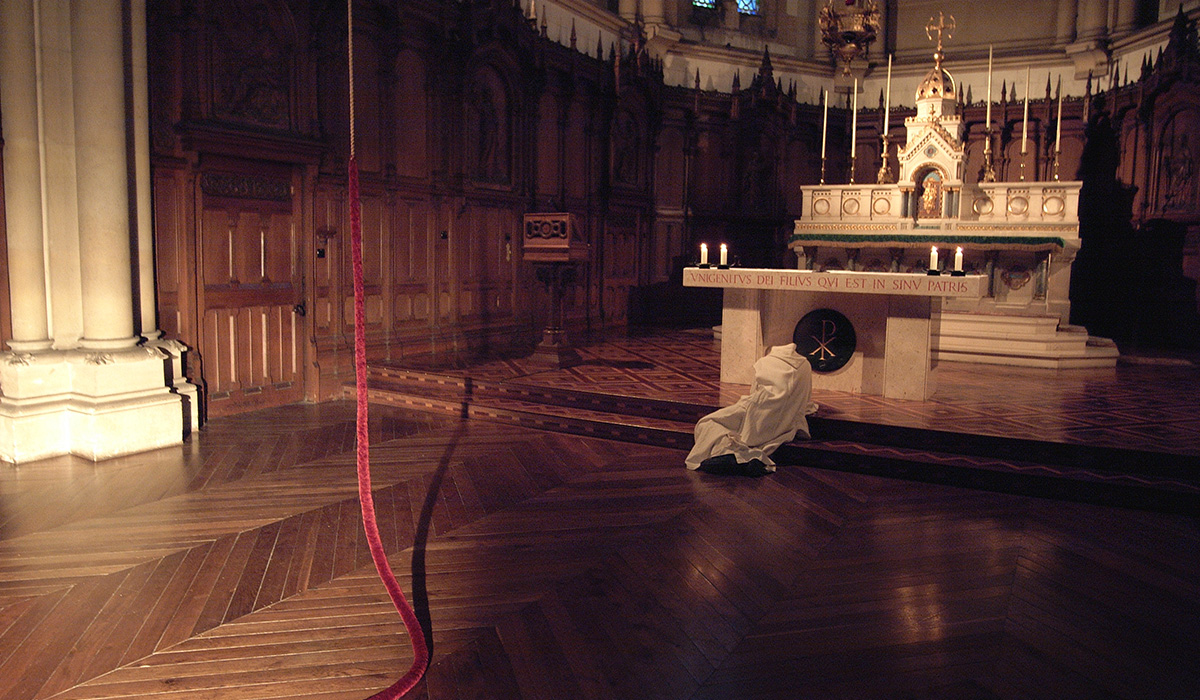
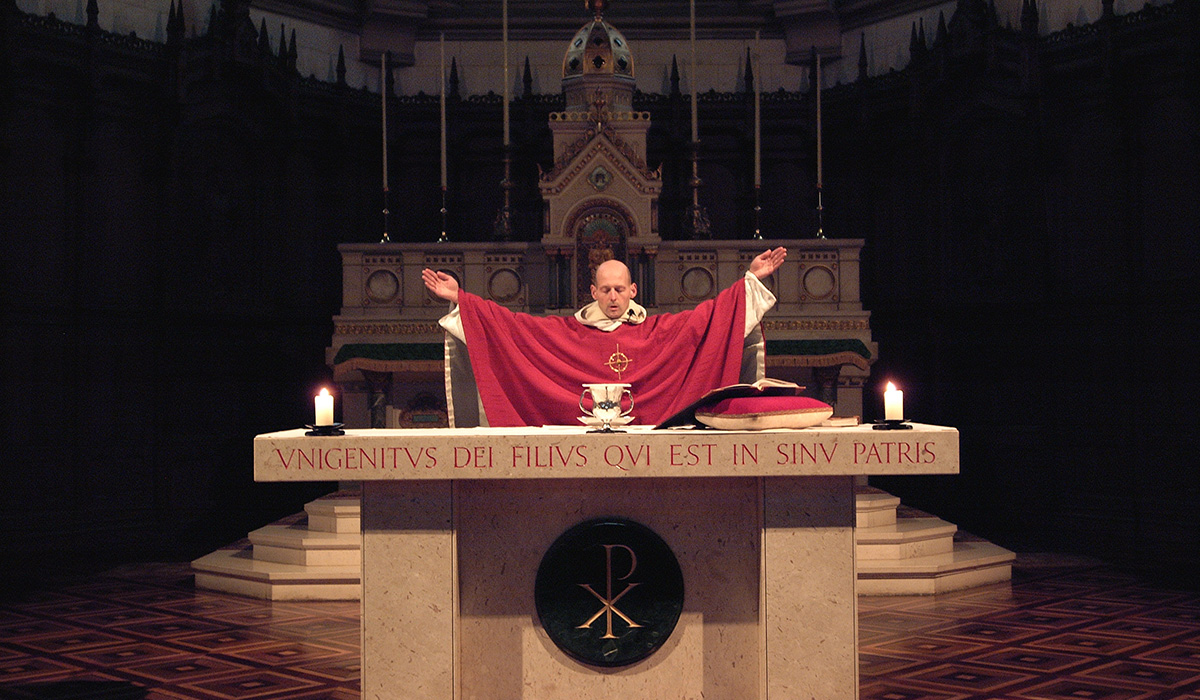
.JPG)
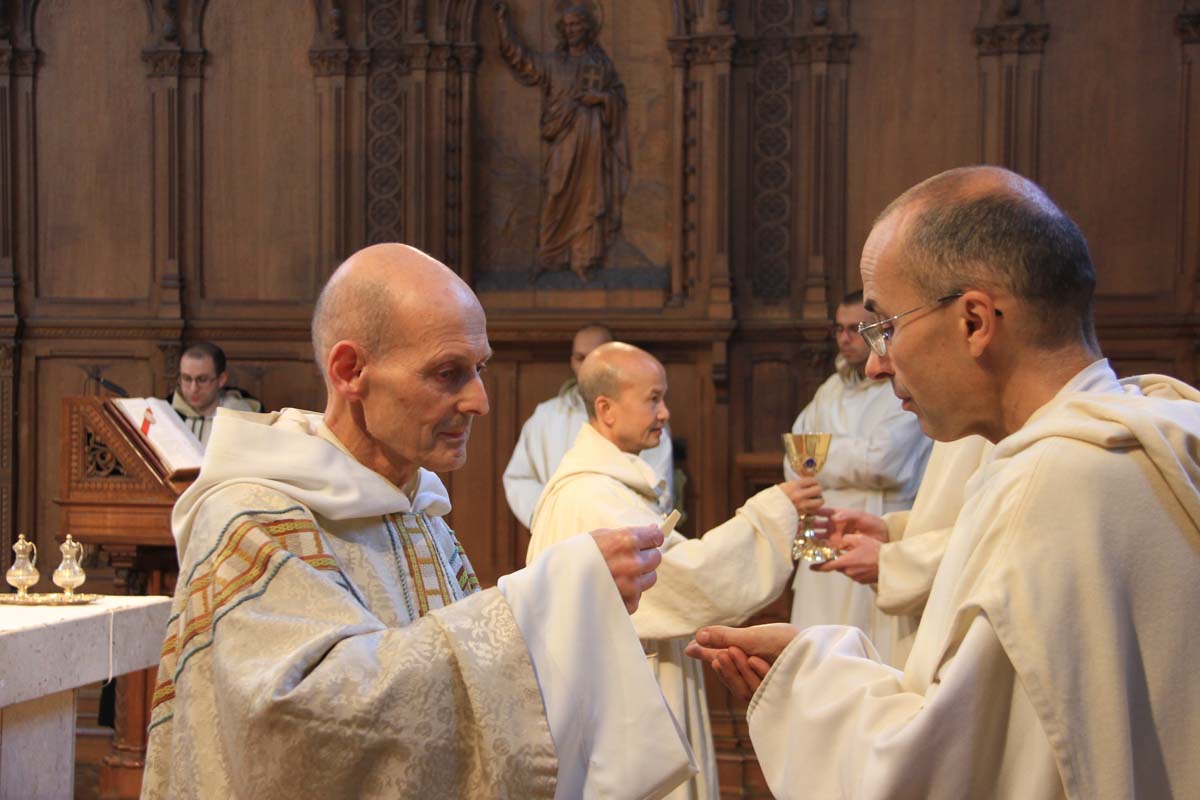








.JPG)

description can go here
description can go here
description can go here
description can go here
description can go here
description can go here
description can go here
description can go here
Communion at Mass
communion at Mass
We celebrate in the church: the night office (from 0:30 am to about 3:30 am), conventual Mass in the morning and the office of Vespers in the afternoon. The Little Hours (Prime, Terce, Sext, None, Compline) are said in solitude. The offices are sung in very ancient Gregorian chant, in Latin, without the use of any musical instruments. The psalmody is in English as well as the readings.
Personal prayer, or prayer of the heart, is nourished by the Liturgy celebrated in common and in solitude. There is no opposition between them, for both express the same reality: the paschal prayer of Christ, his Spirit praying in us. “In our weakness, we do not know how to pray as we ought, but the Spirit himself intercedes for us with sighs too deep for words. And He who searches the hearts of men knows what is the mind of the Spirit, because the Spirit intercedes for the saints according to the will of God.” (Rom 8:26-27)
